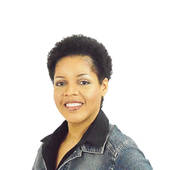In my last post on this topic I discussed depreciation as an expense. We defined depreciation as the measure of the loss of value of business asset over its useful life. So, now we want to find out exactly what an asset is anyway.
As real estate professionals, I will assume you have a basic grasp of assets...or those things you own. With regard to our real estate, or any other business, assets are those things we use in the operation of our business. For purposes of this post I am referring to tangible assets (things).
Your list of assets may include:
|
|
|
|
|
|
|
|
|
The assets used in your business all have an estimated useful life. Once the useful life is determined you would spread the cost of the asset of its useful life and deduct that amount as depreciation expense on your tax return. Alternatively, you may elect to deduct the full cost of the asset in the year you purchased by using the Section 179 deduction. Your tax professional should be able to assist you with determining which option is best for your particular situation.
To assist your tax professional with calculating your depreciation allowance, make a list of all of the assets used in your business. If you "contributed" as asset that you owned prior to starting your real estate business you can use its value at the time it was placed in service. Here is a sample schedule to help you get started.
Description | Purchase Date | Placed in Service Date | Cost | FMV Today |
HP Color Laser Printer | 2/25/2006 | 2/25/2006 | $597 |
|
PB Imagistics MFP |
| 9/1/2006 |
| $275 |
|
|
|
|
|
*NOTE: This list of assets is by no means exhaustive. It does include some of the most common assets used by small business owners.
Always consult a tax professional if you are not sure about the tax treatment of certain items.

Comments(6)